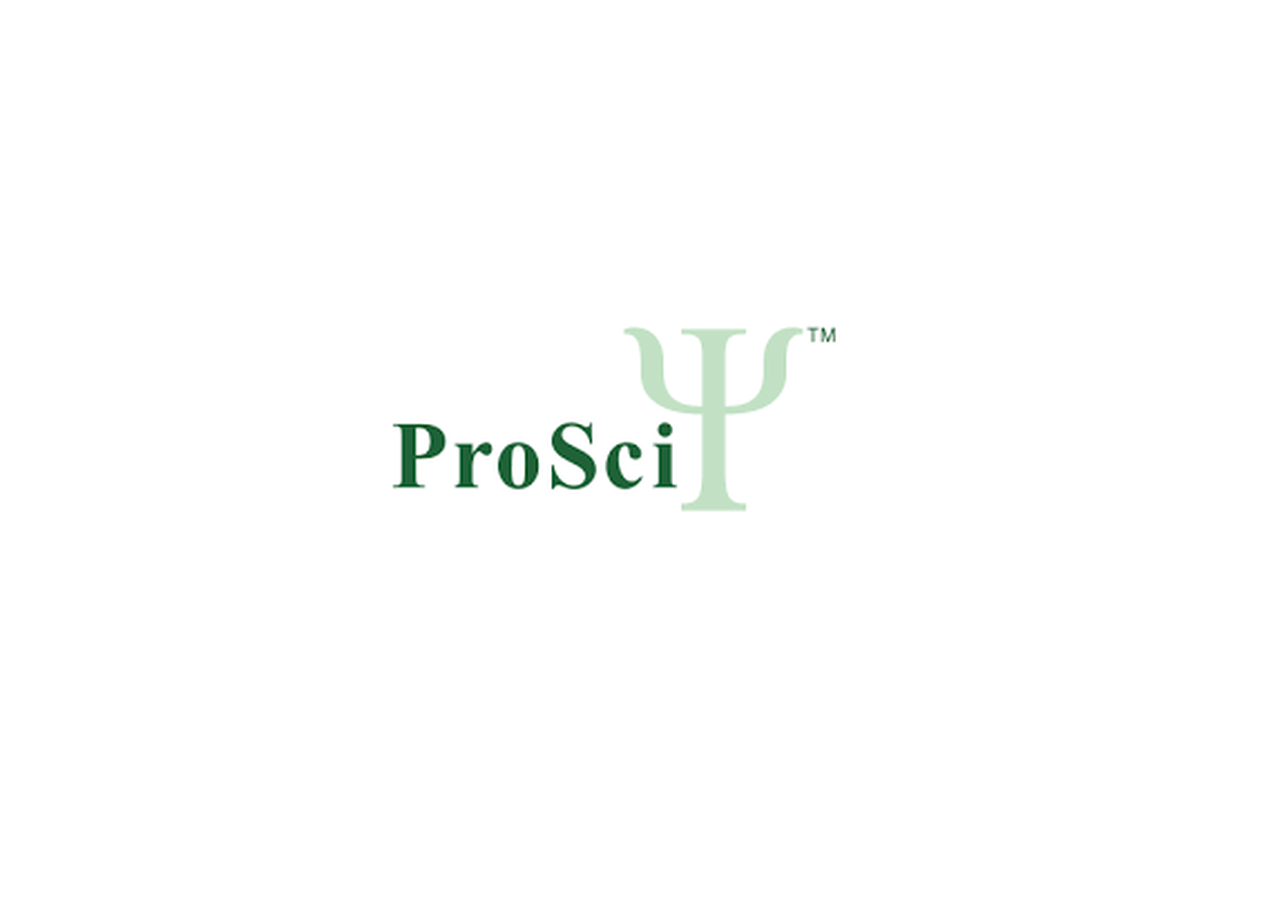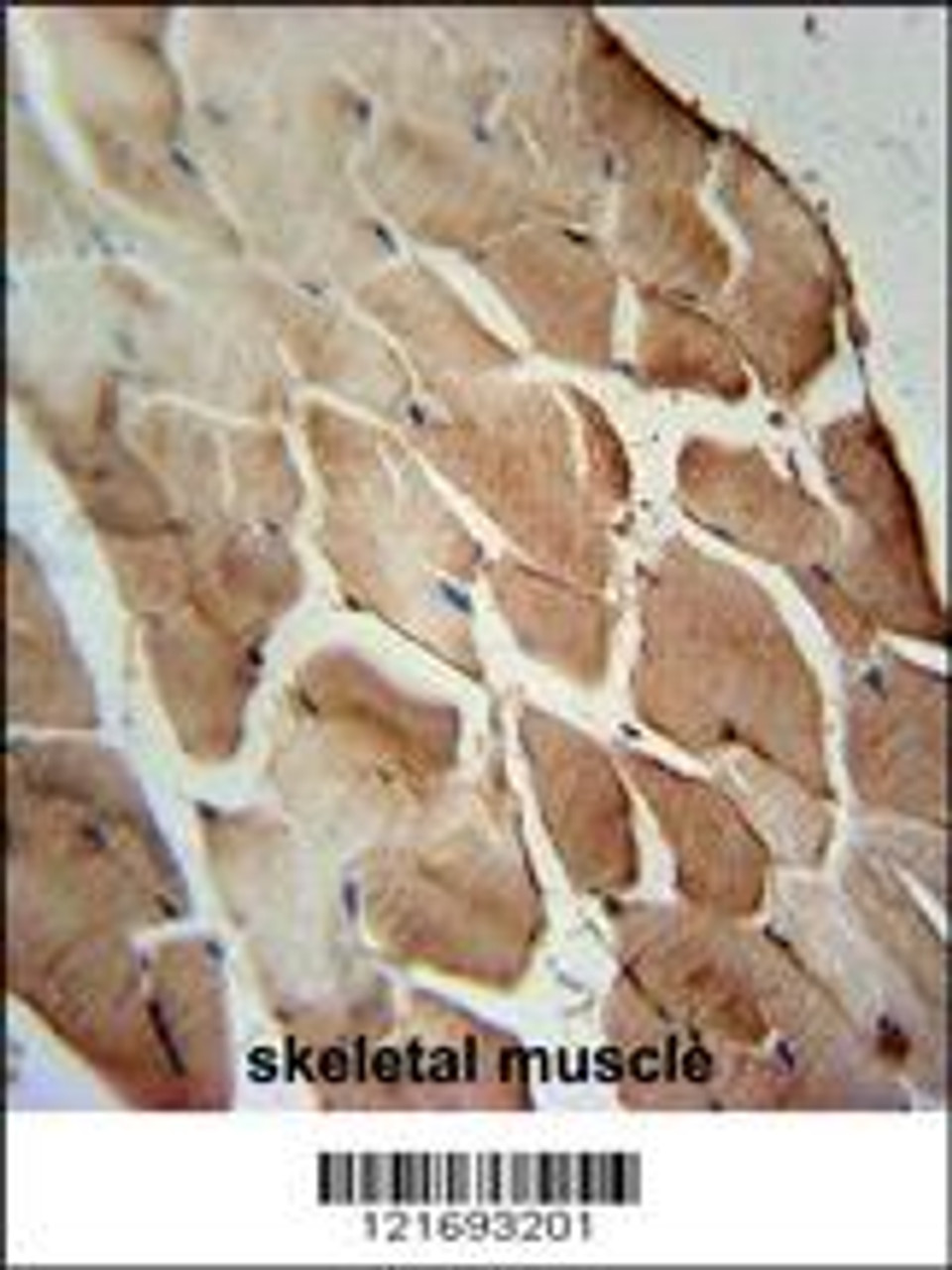Product Description
ACOT11 Antibody | 55-048 | ProSci
Host: Rabbit
Reactivity: Human
Homology: N/A
Immunogen: This ACOT11 antibody is generated from rabbits immunized with a KLH conjugated synthetic peptide between 549-575 amino acids from the C-terminal region of human ACOT11.
Research Area: Obesity, Signal Transduction
Tested Application: WB, IHC-P, Flow
Application: For WB starting dilution is: 1:1000
For IHC-P starting dilution is: 1:50~100
For FACS starting dilution is: 1:10~50
Specificiy: N/A
Positive Control 1: N/A
Positive Control 2: N/A
Positive Control 3: N/A
Positive Control 4: N/A
Positive Control 5: N/A
Positive Control 6: N/A
Molecular Weight: 68 kDa
Validation: N/A
Isoform: N/A
Purification: This antibody is purified through a protein A column, followed by peptide affinity purification.
Clonality: Polyclonal
Clone: N/A
Isotype: Rabbit Ig
Conjugate: Unconjugated
Physical State: Liquid
Buffer: Supplied in PBS with 0.09% (W/V) sodium azide.
Concentration: batch dependent
Storage Condition: Store at 4˚C for three months and -20˚C, stable for up to one year. As with all antibodies care should be taken to avoid repeated freeze thaw cycles. Antibodies should not be exposed to prolonged high temperatures.
Alternate Name: Acyl-coenzyme A thioesterase 11, Acyl-CoA thioesterase 11, 312-, Acyl-CoA thioester hydrolase 11, Adipose-associated thioesterase, Brown fat-inducible thioesterase, BFIT, ACOT11, BFIT, KIAA0707, THEA
User Note: Optimal dilutions for each application to be determined by the researcher.
BACKGROUND: This gene encodes a member of the acyl-CoA thioesterase family which catalyse the conversion of activated fatty acids to the corresponding non-esterified fatty acid and coenzyme A. Expression of a mouse homolog in brown adipose tissue is induced by low temperatures and repressed by warm temperatures. Higher levels of expression of the mouse homolog has been found in obesity-resistant mice compared with obesity-prone mice, suggesting a role of acyl-CoA thioesterase 11 in obesity. Alternative splicing results in transcript variants.
 Euro
Euro
 USD
USD
 British Pound
British Pound
 NULL
NULL












